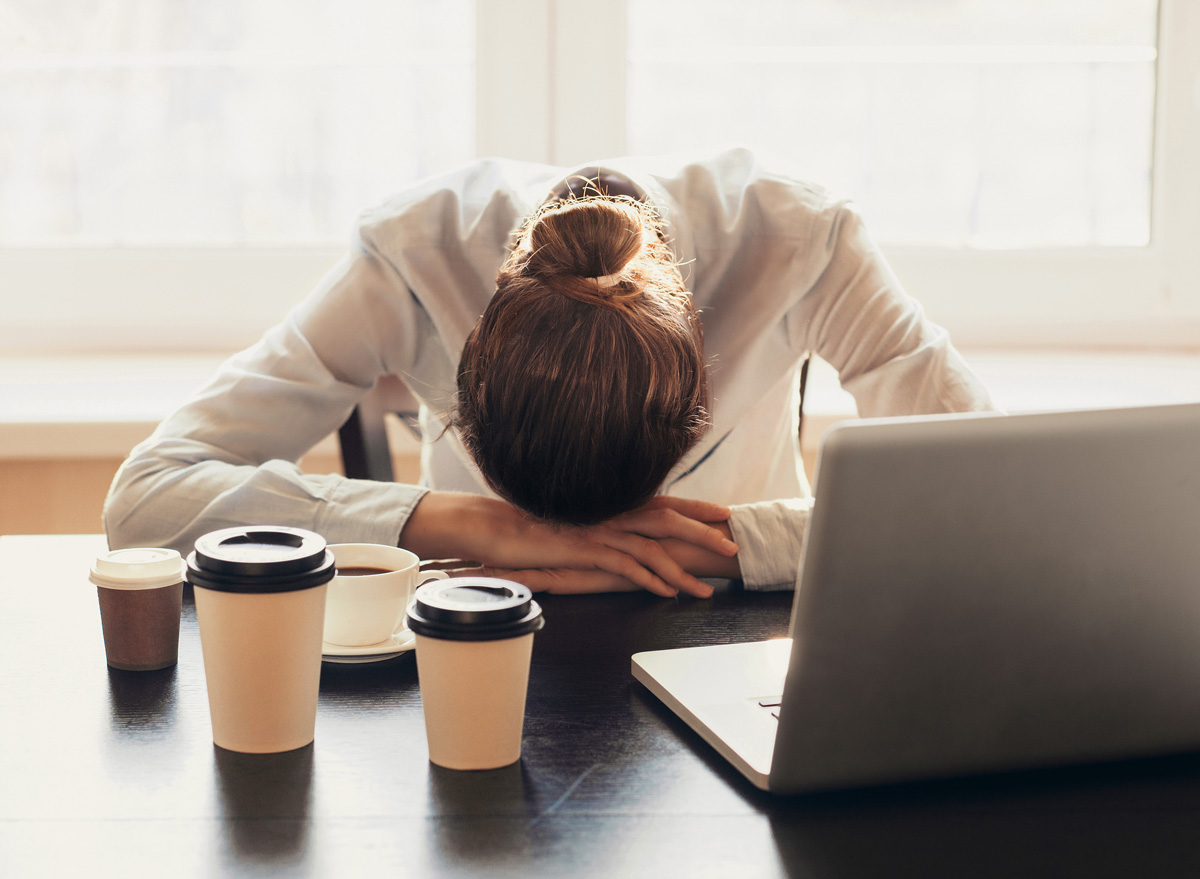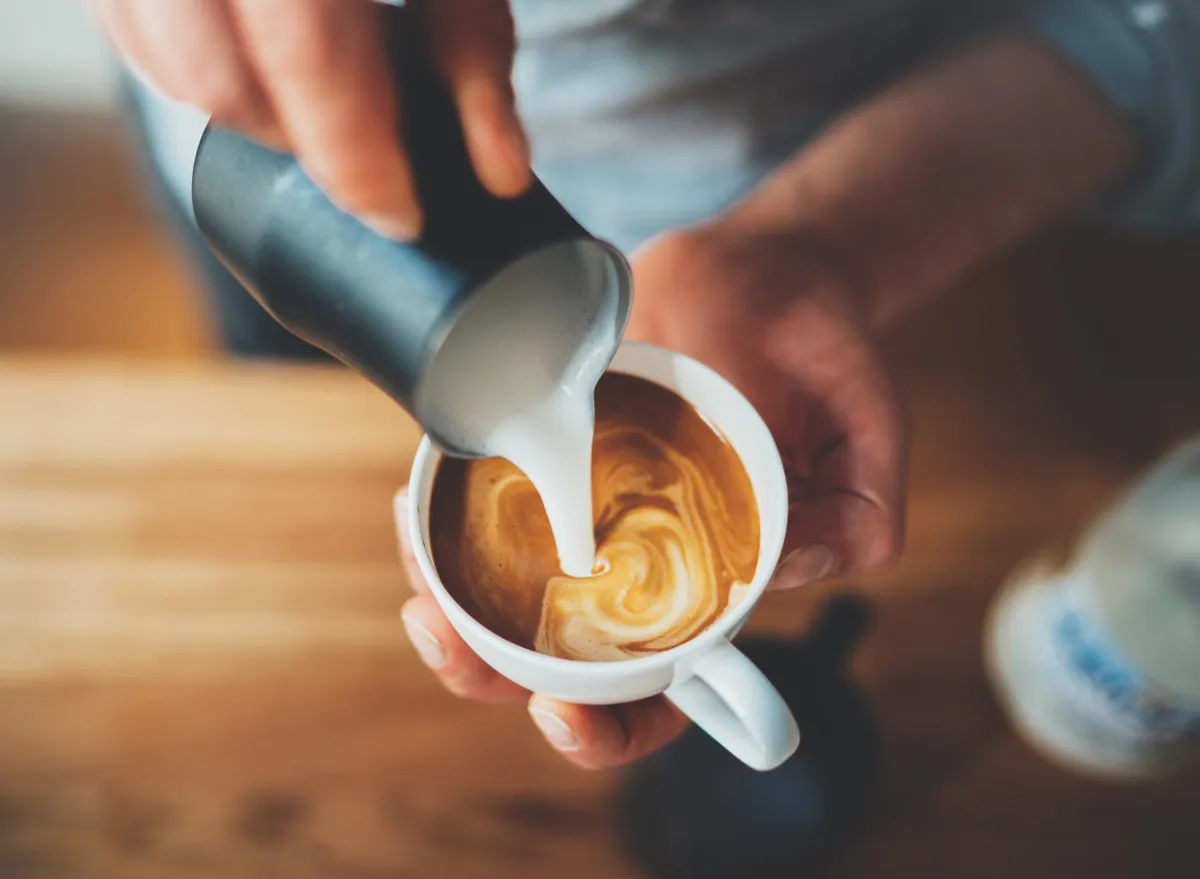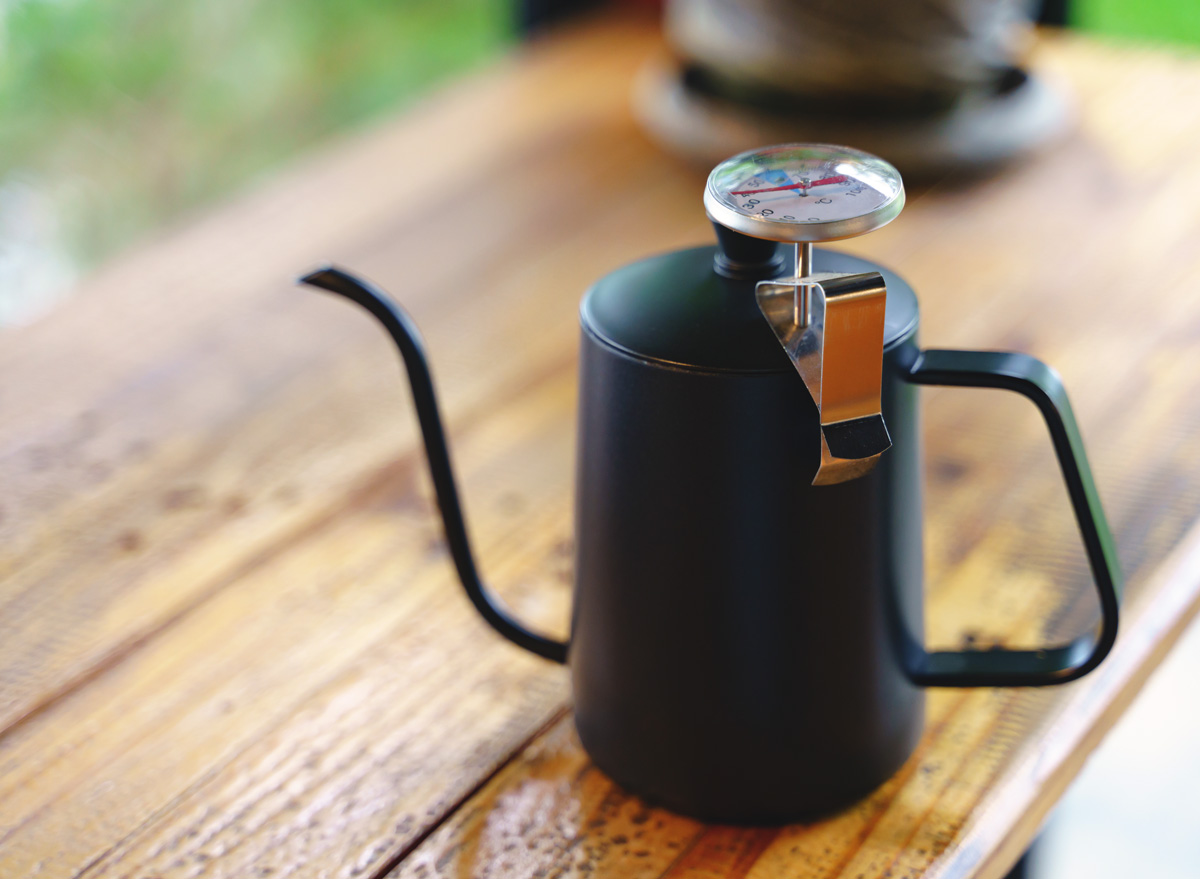This Simple Coffee Mistake Could Be Damaging Your Body, Says New Study

Everyone suffers from a bad night of sleep every now and then. But if the first thing you do after a sleepless night is reach for a cup of coffee, you may want to think twice. According to a fascinating new study published in The British Journal of Nutrition, if you have your morning dose of caffeine before you eat your breakfast, you could be negatively impacting your blood sugar levels and ultimately raising your risk of developing heart disease and diabetes down the road. Read on for more about how the scientists arrived at their conclusion, and if you want to gain better control of your blood sugar starting immediately, make sure you're aware of the 100 Most Toxic Foods You Shouldn't Eat.
The study, conducted by physiologists at the Centre for Nutrition, Exercise & Metabolism at the UK's University of Bath focused on a group of roughly 30 healthy people who underwent three different experiments.
In the first, they had a "normal night's sleep" and then consumed a "sugary drink" first thing in the morning. (The sugary drink "mirrored what might typically be consumed for breakfast," the study authors notes.) In the second, participants experienced "a disrupted night's sleep," in which they were woken up for five minutes every hour during the night, and were then given the same drink. In the third, participants had a disrupted night in bed but were given "strong black coffee 30 minutes before consuming" the drink that represented breakfast.
In all three scenarios, the researchers monitored the participants' blood glucose levels. Afterward, they found that a single night of terrible sleep, when compared to a good night's sleep, didn't necessarily impact the participants' blood glucose levels and insulin response. (This was a surprise, as countless studies have shown that poor sleep can do very real damage to your body's metabolic systems and insulin response.) However, when the study participants downed coffee before consuming breakfast, their blood sugar levels skyrocketed by 50%.
"Put simply, our blood sugar control is impaired when the first thing our bodies come into contact with is coffee especially after a night of disrupted sleep," writes James Betts, Professor of Metabolic Physiology at the University of Bath and Chair of the Department for Health Research Ethics Committee. "We might improve this by eating first and then drinking coffee later if we feel we still need it. Knowing this can have important health benefits for us all."
He went on: "We know that nearly half of us will wake in the morning and, before doing anything else, drink coffee—intuitively the more tired we feel, the stronger the coffee. This study is important and has far-reaching health implications as up until now we have had limited knowledge about what this is doing to our bodies, in particular for our metabolic and blood sugar control."
If you find yourself struggling to pull yourself out of bed, remember to reach for your coffee well after you've had your breakfast. And if you're curious to know what some of the upsides to drinking coffee at the right time are, read on, because we've listed them below. (Also, know that no matter when you drink your coffee, new science says it's dangerous to drink it this way.)
It'll help you get fit.

Yes, coffee will help power you through your workout. But the caffeine could also reduce muscle soreness, so feel free to enjoy a cup of Joe after your workout (and after refueling with a snack, of course).
Sign up for our newsletter for more healthy eating news.
It'll improve your mood.

Believe it or not, coffee could help reduce your risk of depression. "Coffee has been associated with a reduced risk of depression and suicide—but it's unknown if that benefit is due to the coffee or the caffeine in it," Debbie Petitpain, MS, RDN, registered dietitian nutritionist and media spokesperson for the Academy of Nutrition and Dietetics, previously told Eat This, Not That! "Coffee is so widely consumed that caffeine is the most used psychoactive agent, with 85% of US adults consuming it daily. Thus, it can be difficult to distinguish the benefits attributed to coffee from its caffeine content."
It'll help ward off disease.

"Coffee is surprisingly rich in antioxidants: naturally-occurring plant compounds that have been shown to help protect against several chronic diseases, including heart disease and cancer," Kelli McGrane MS, RD, registered dietitian and Lose It! nutrition consultant, said to Eat This, Not That! "Coffee is particularly rich in an antioxidant called chlorogenic acid, which has been linked with helping to reduce cholesterol, triglyceride, and blood sugar levels. Of course, other lifestyle factors are also important in reducing your chronic disease risk, including diet, exercise, and not smoking."
It'll stimulate your mind.

Coffee could help reduce your risk of dementia, as if you needed another reason to pour that post-breakfast cup of Joe. One study referenced by the National Library of Medicine found that "coffee drinking of 3-5 cups per day at midlife was associated with a decreased risk of dementia/AD by about 65% at late-life."
It could help with weight loss.

If you're trying to lose a few pounds, coffee could be the key to your success. A study from the Harvard T.H. Chan School of Public Health found that drinking four cups of coffee a day could help reduce body fat. For more expert-backed nutrition advice, don't miss this list of 12 Foods That Speed Up Weight Loss.








